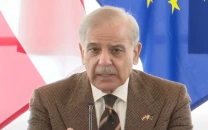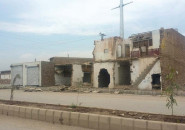Talking war and peace in South Asia
Speakers underscore the need to redefine goals for the interest of the people.

Speakers displayed different expectations of what the future holds for the Indo-Pak relationship at an interactive session on “Peace and Conflict in South Asia” here on Monday.
Manzoor Ijaz, a journalist seemed quite optimistic, saying that there is greater information flow between Pakistanis and Indians today, than during his generation. He stated that there is a face emerging to Pakistan’s ‘enemy ghost’ as interaction increases, humanising the ‘demon.’
On the flip side, Dr Ayesha Siddiqa, a defence analyst commented, “Our conflict has shifted from territorial to ideological. Ideological differences are much harder to resolve and can lead to exacerbating our differences.” She further said, “For all of the information flow and common culture between India and Pakistan, we are anomalies as this common culture fails to bring us closer, showing that there is another issue at work.”
She said that unless Pakistanis and Indians don’t have stakes in each other; be it economical, social, population control, water management, they will not come together to work towards a common interest.
In similar vein, Senior Research Fellow Dr Shaheen Akhtar called for a pragmatic approach that India and Pakistan should forge a partnership as enmity is a loss for both parties and friendship is tasking to acquire. She further added, “We need to, within existing systems, redefine our goals for the interest of the people, if we wait for the entire system to change we will be waiting a long time”.
“If we open the trade corridor and can tap in to even a little bit of India’s population we can gain many economical benefits,” she added.
Meanwhile, Nargis Zehra, a reseacher, stated that instead of focusing on one conflict at a time, a more holistic approach needs to be employed and a few issues need to be attacked simultaneously.
The speakers also addressed the issue of the transitional phase of Pakistan, in particular technology’s impact. Ijaz stressed the importance of seeking first-hand knowledge of what happens in the rural areas of Pakistan and make informed decisions instead of blindly accepting information provided from media.
Ijaz also stressed on a better grasp on the region’s history, relating to Pakistan and pre-partition era, so informed decisions can be made. A lot of the displaced feelings of mistrust towards India comes from biased accounts of historical events, that perpetuate hate and disdain, he added.
The session was organised by South Asian Free Media Association Media Centre.
Published in The Express Tribune, February 7th, 2012.


















COMMENTS
Comments are moderated and generally will be posted if they are on-topic and not abusive.
For more information, please see our Comments FAQ